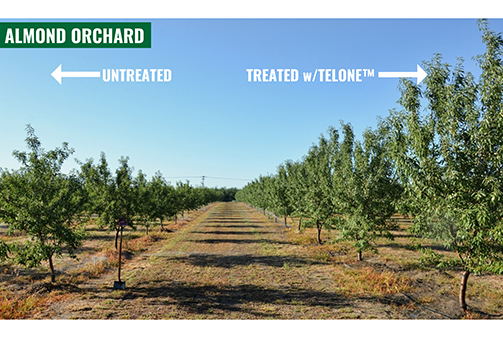Latest Legislative Session Yields Big Wins for Florida Ag
Florida lawmakers made the final dash to the finish line of the 2019 legislative session on May 4, passing 195 bills through both chambers. The 2019-2020 budget came in at $91.1 billion. While there has been concern about agriculture’s dwindling influence in Tallahassee, there were some wins and important funding of key ag programs during this year’s session.
According to Butch Calhoun, Florida Fruit & Vegetable Association’s Director of Government Relations, it was a challenging session, especially with the loss of many agriculture champions in the legislature due to retirement or term limits. Calhoun retired in June, capping off a 29-year career advocating for Florida agriculture.
“Today’s legislature is very different than it was before the last election,” Calhoun said. “With these losses [of lawmakers], the agricultural industry had very few asks this session and had to work hard not to lose any of the gains made in the past.”
Hooray for Hemp
Probably the biggest news out of this year’s session was the passage of SB 1020, which authorizes the State Industrial Hemp Program. The bill authorizes the Florida Department of Agriculture and Consumer Services (FDACS) to develop rulemaking for a hemp program to administer and oversee cultivation of the crop.
The bill also creates a 15-member Industrial Hemp Advisory Council to advise FDACS as they create plans, policies, and procedures. When the proposed program is developed, it will be submitted to USDA for approval.
Water Issues
With the attention focused on water issues stemming from toxic algae blooms and red tides, there were a number of water-related bills considered during the session. Gov. Ron DeSantis placed a big emphasis on water during his first session in office.
The legislature allocated $25 million to fund efforts to combat blue-green algae and red tide. Overall efforts targeted at improving water quality received $50 million, and $100 million will go toward springs restoration. Everglades restoration received $400 million, $4 million of which will fund nutrient reduction and water retention projects in and around Lake Okeechobee.
Conservation-Easements Unfunded
One casualty of this year’s session was the Florida Rural and Family Lands Protection Program. The conservation-easement program preserved green space in Florida while keeping farms on the tax roles. Popular with farmers and environmentalists, $75 million was requested for the program; however, it went unfunded during this year’s session.
Other Highlights for Florida Ag
Some of the session’s key activities focused on maintaining funding for existing programs. Here are a few of those programs, what was requested, and ultimately funded.
- $8 million requested for Citrus Research and Development Foundation to continue critical basic research into citrus greening and to begin applied research through large-scale grower field trials — fully funded
- $2.5 million requested for the Citrus Inspection Trust Fund to supplement grower assessments, citrus inspection, citrus forecasting, and budwood protection — $2.4 million allocated
- $6.4 million requested for the Citrus Health Response Program — fully funded
- $5 million requested for Florida Department of Citrus marketing programs — $935,550 allocated
- $650,000 requested for the New Varieties Development & Management Program — fully funded
- $10 million requested for FDACS Fresh From Florida Program — $5.8 million allocated
- $25 million requested for FDACS BMP Cost-Share Program — $4 million allocated










